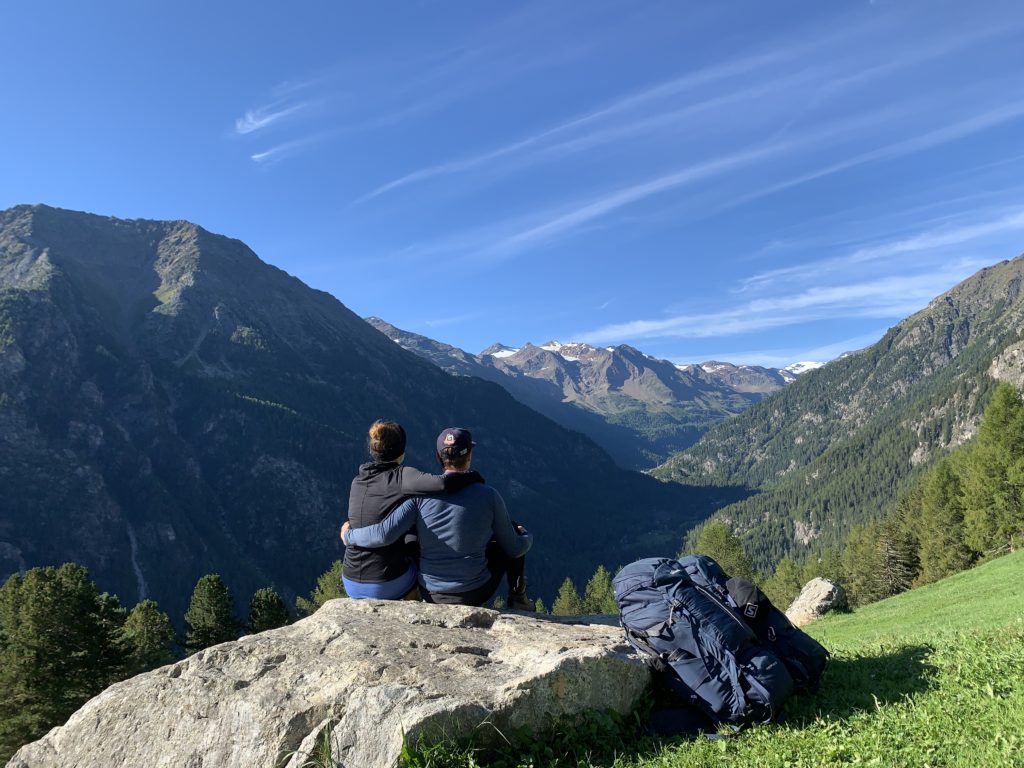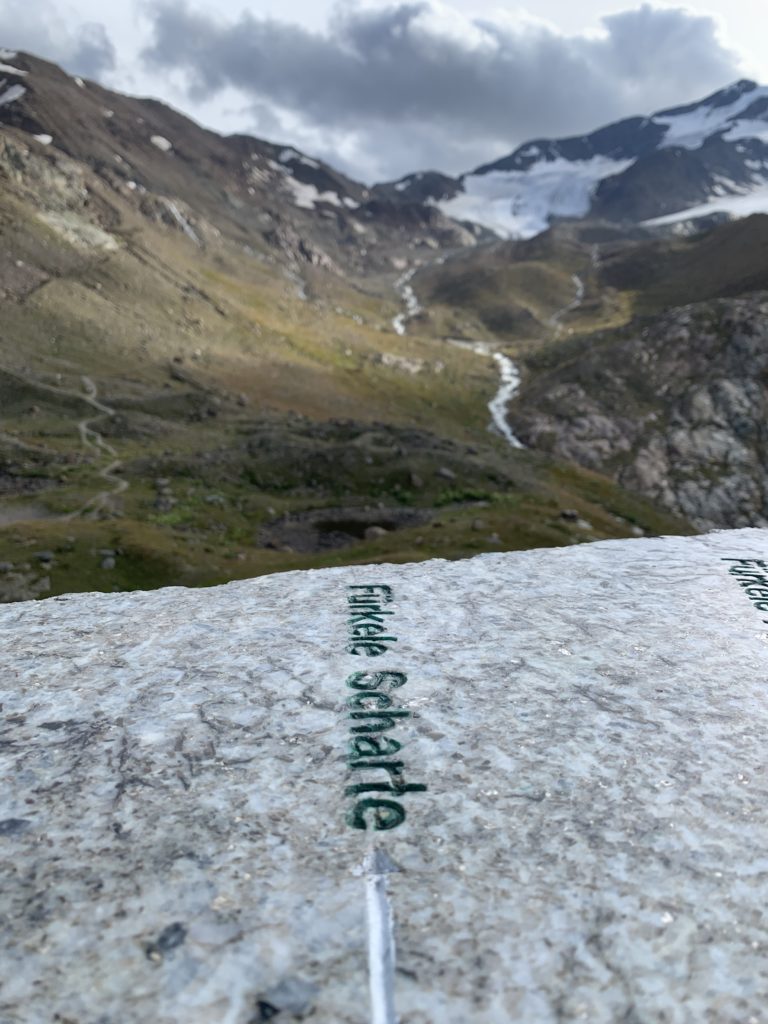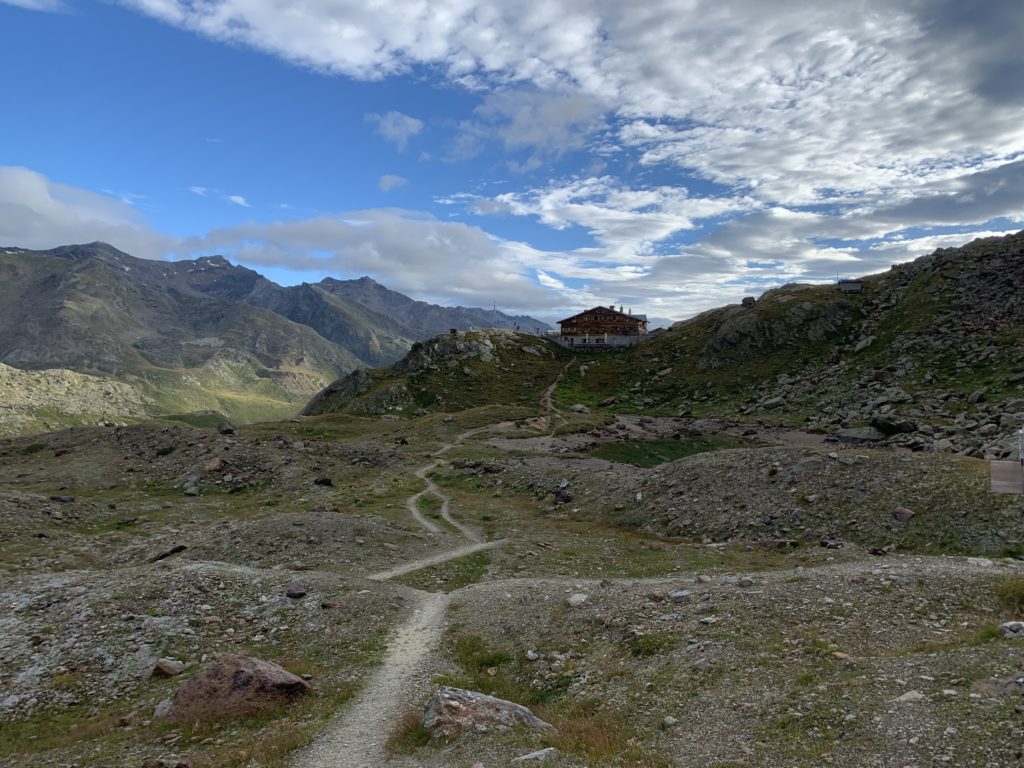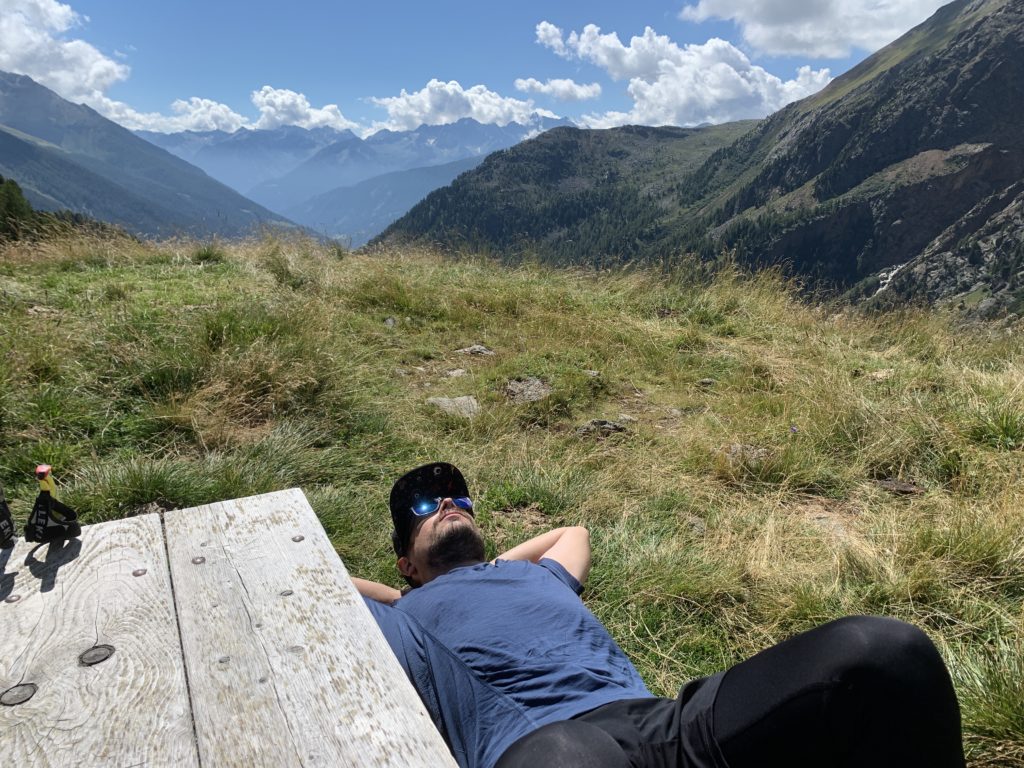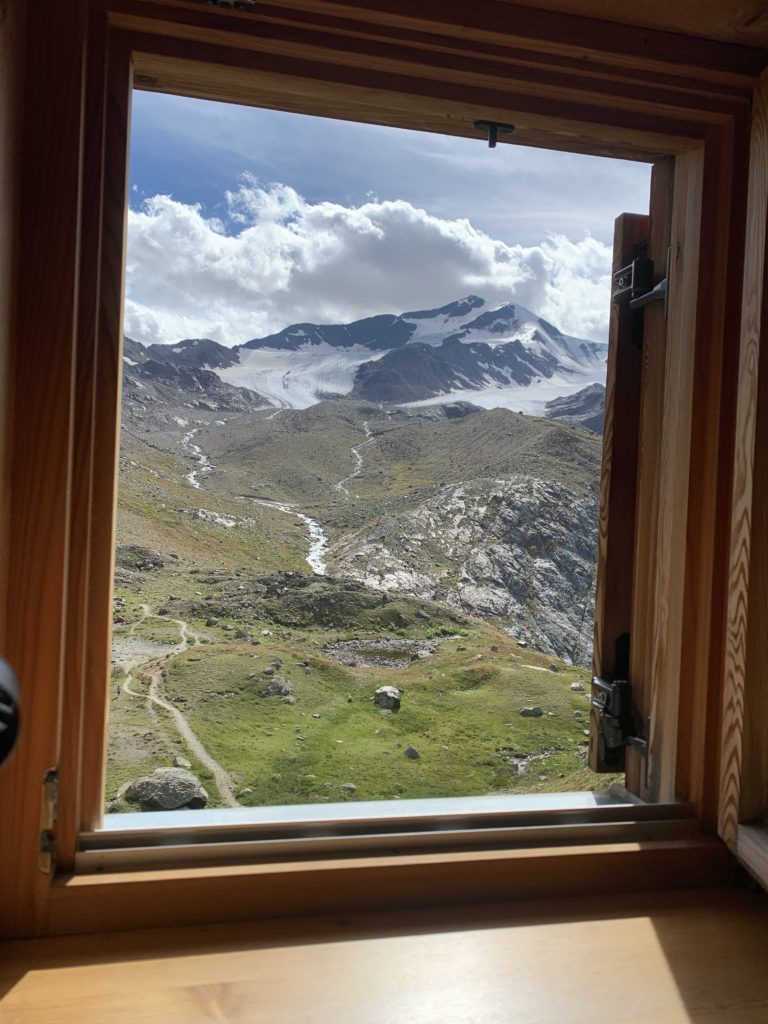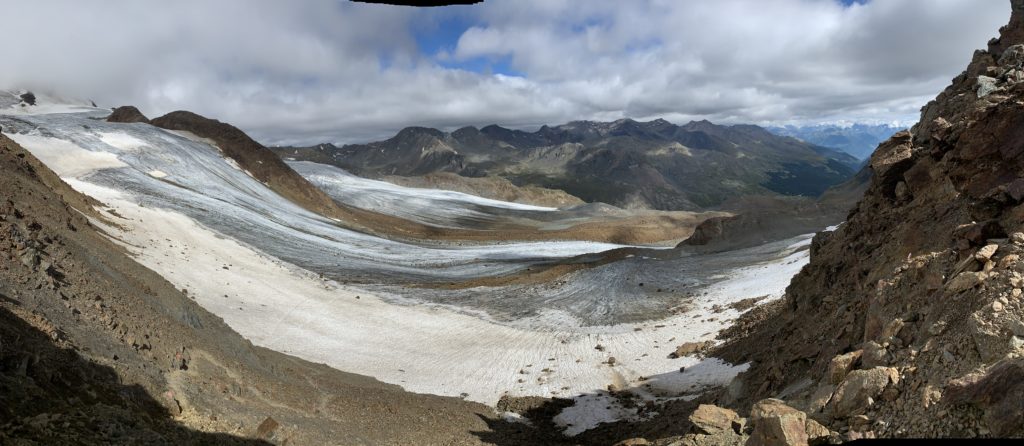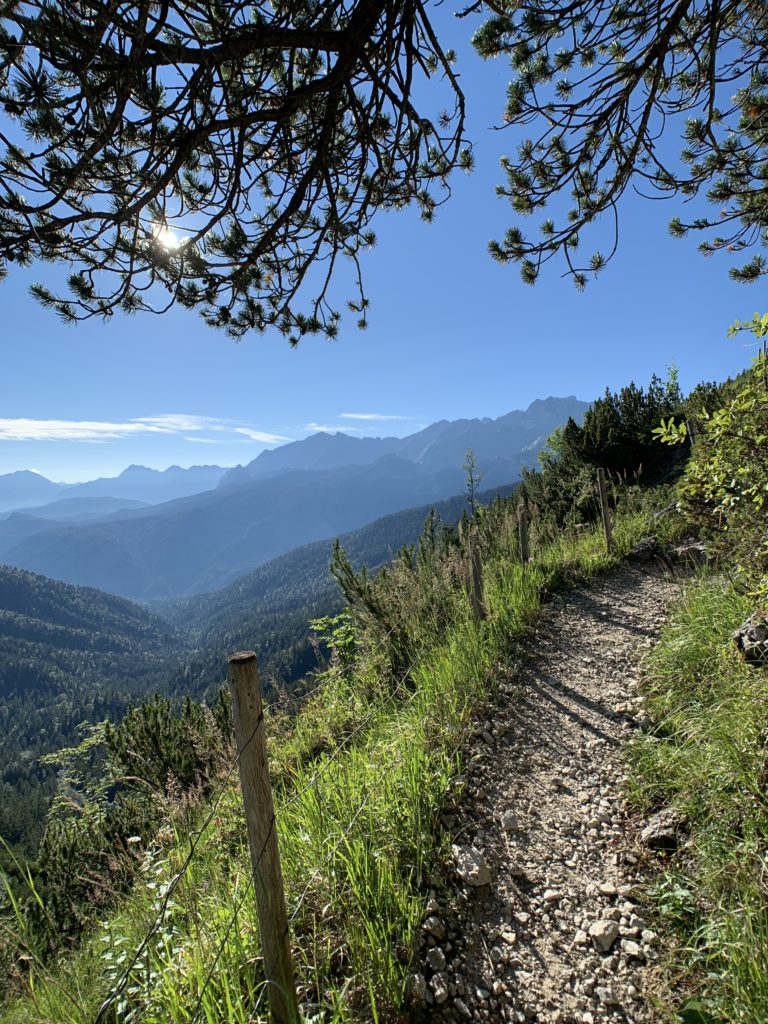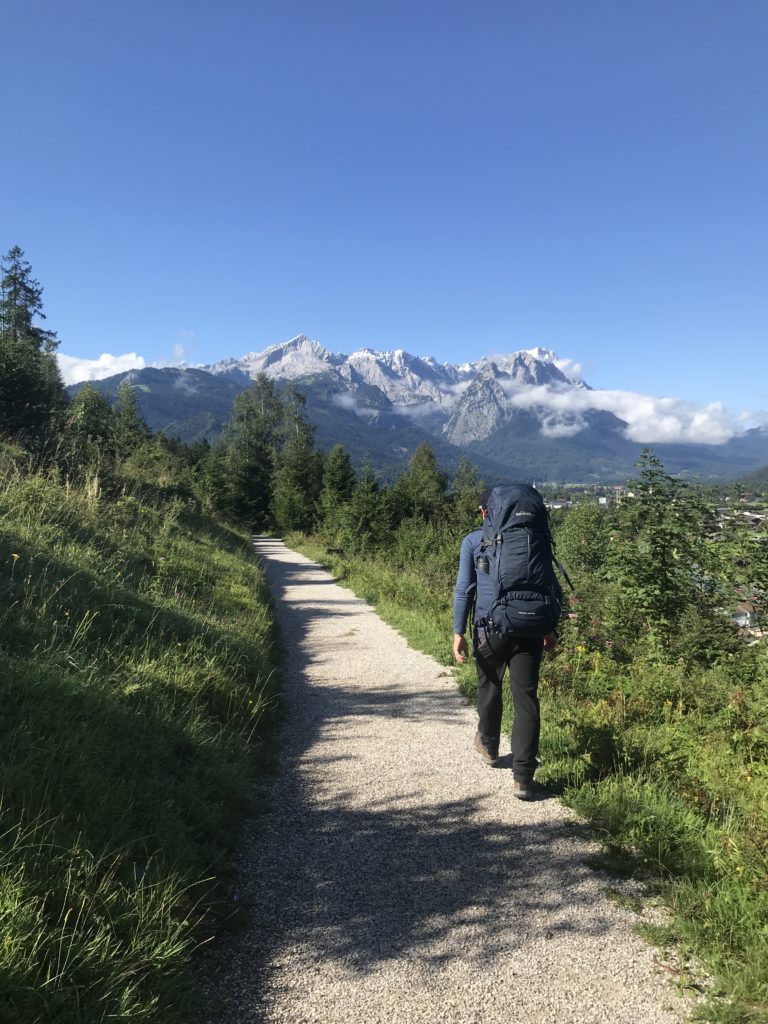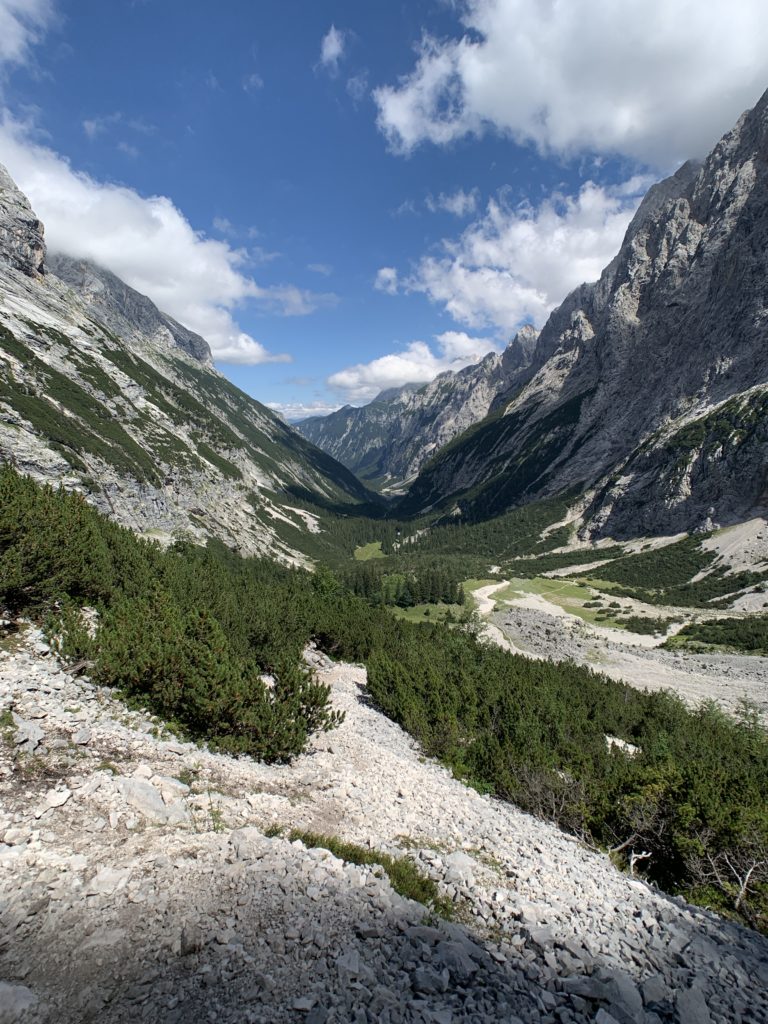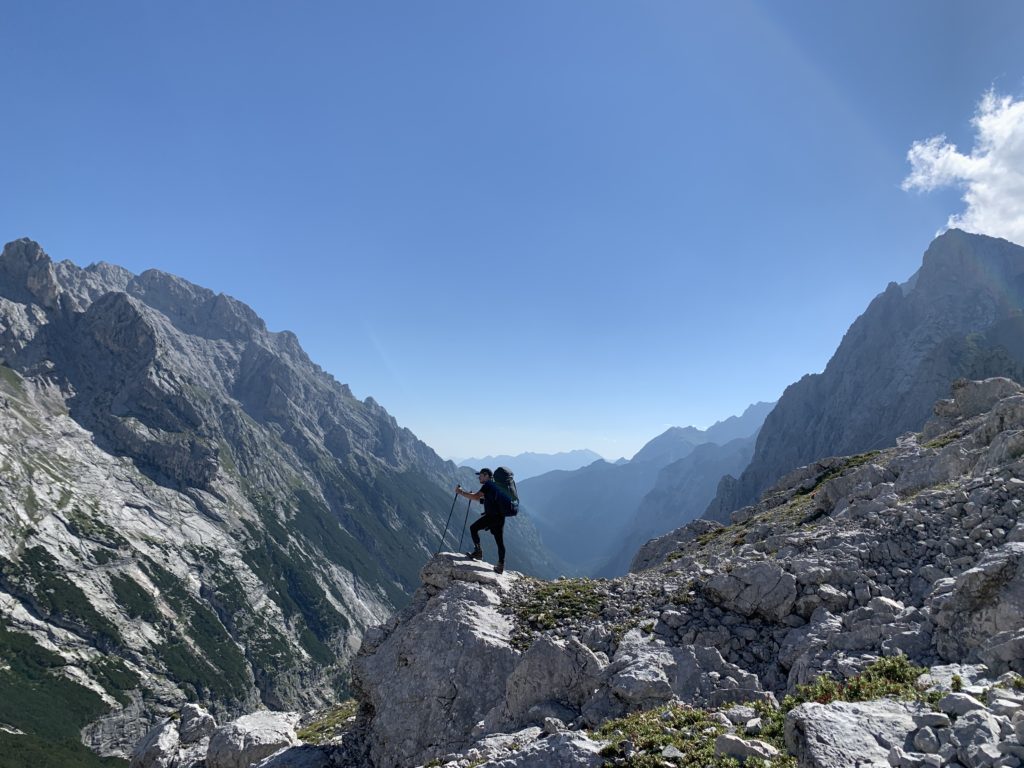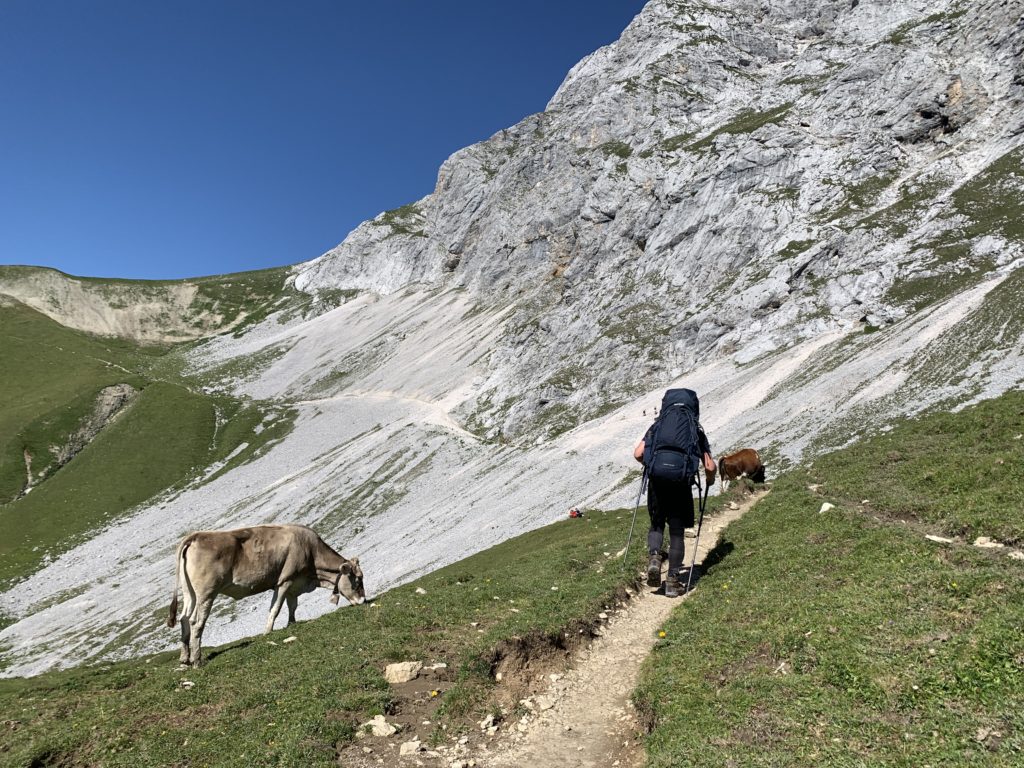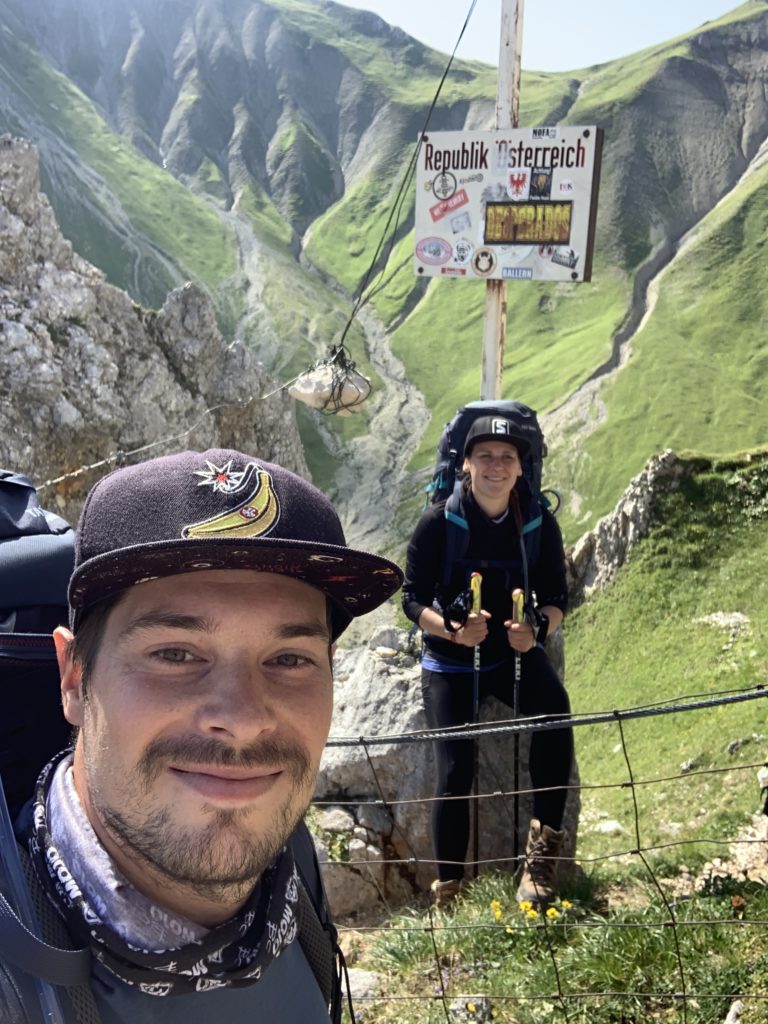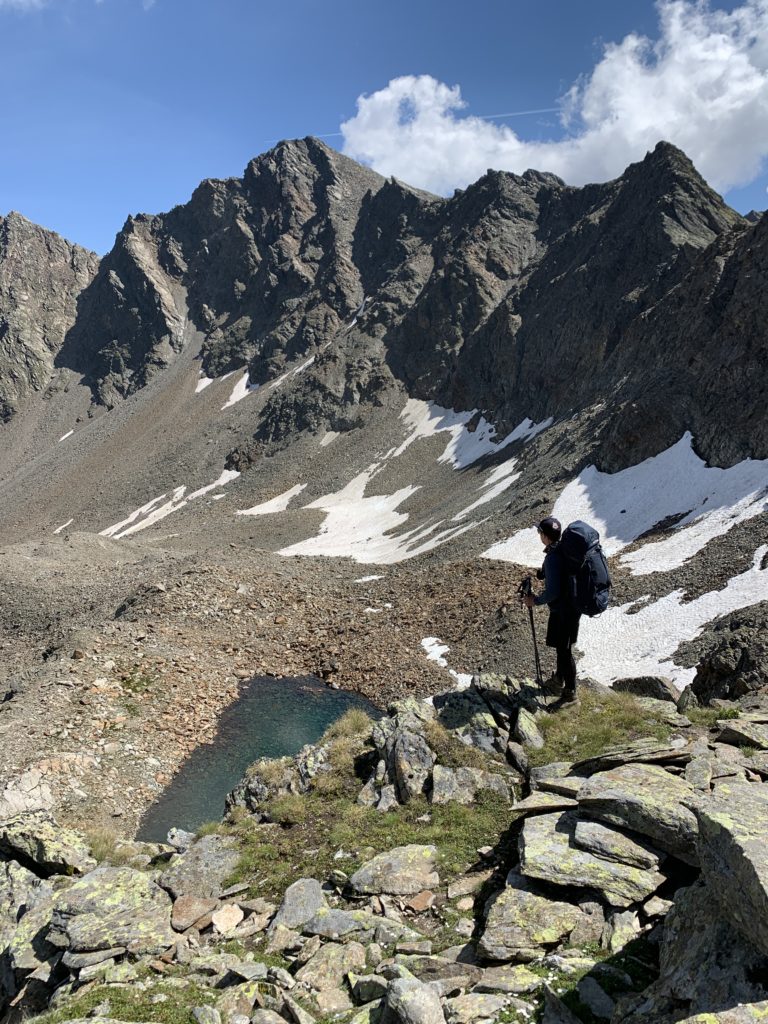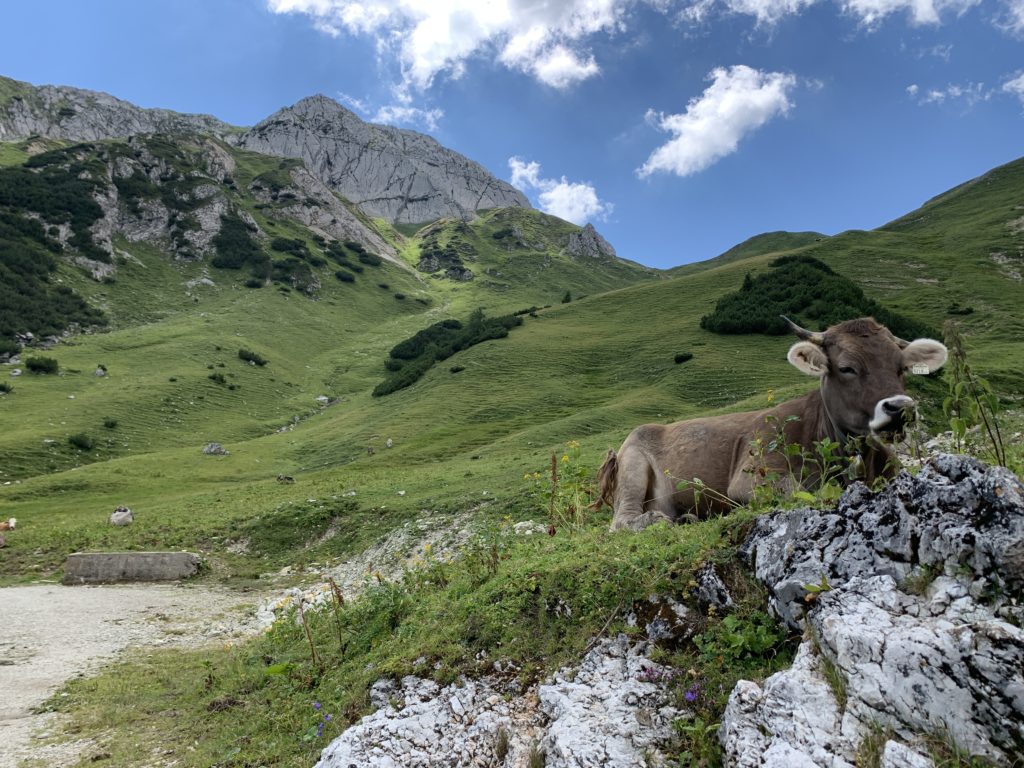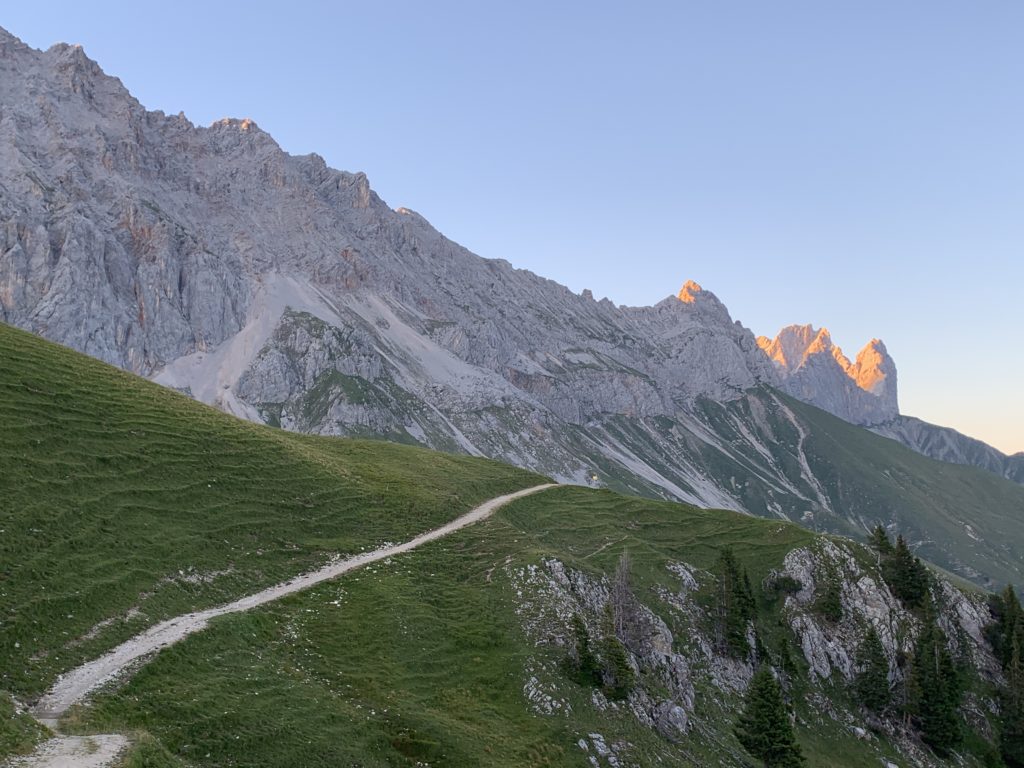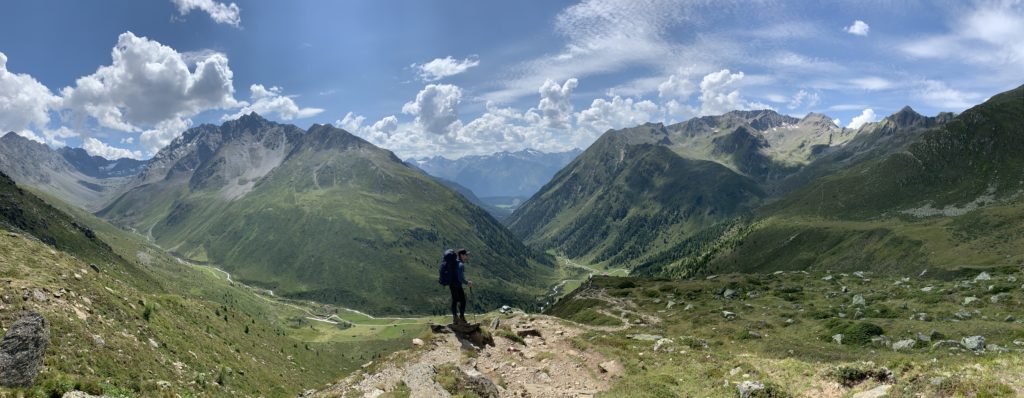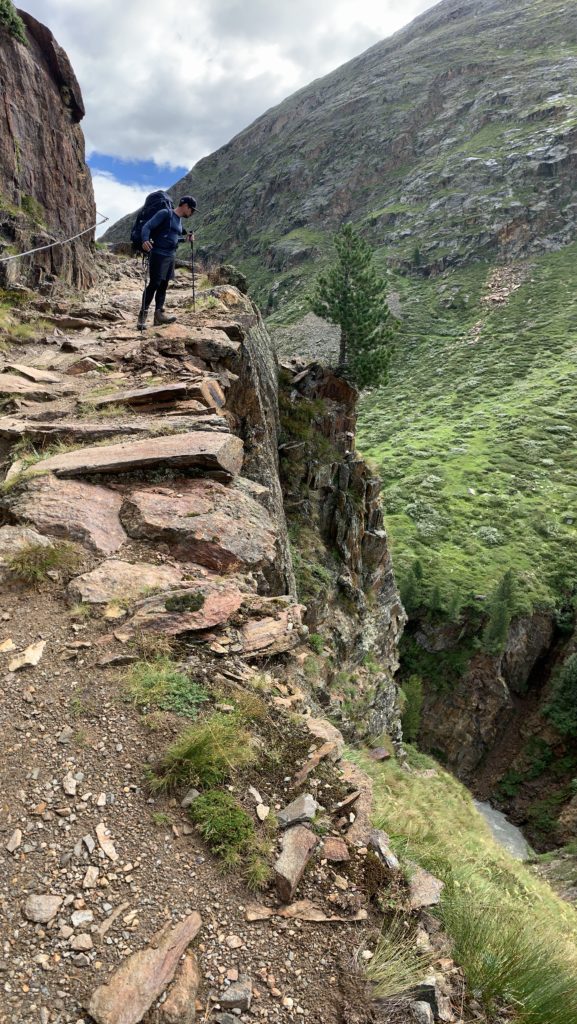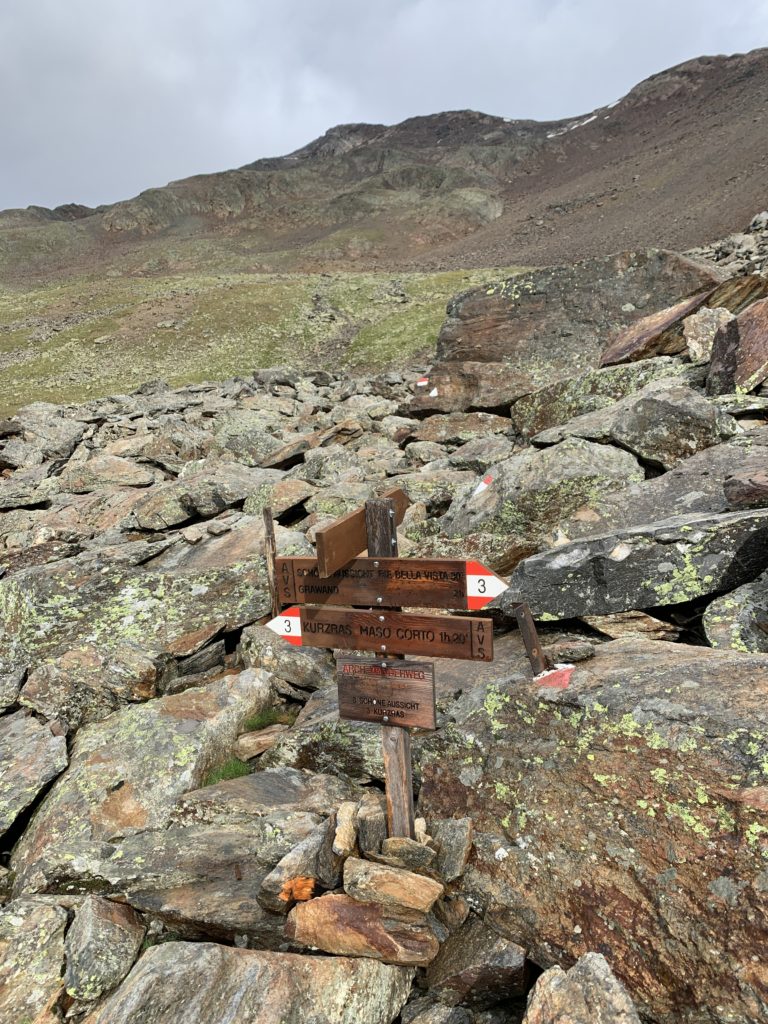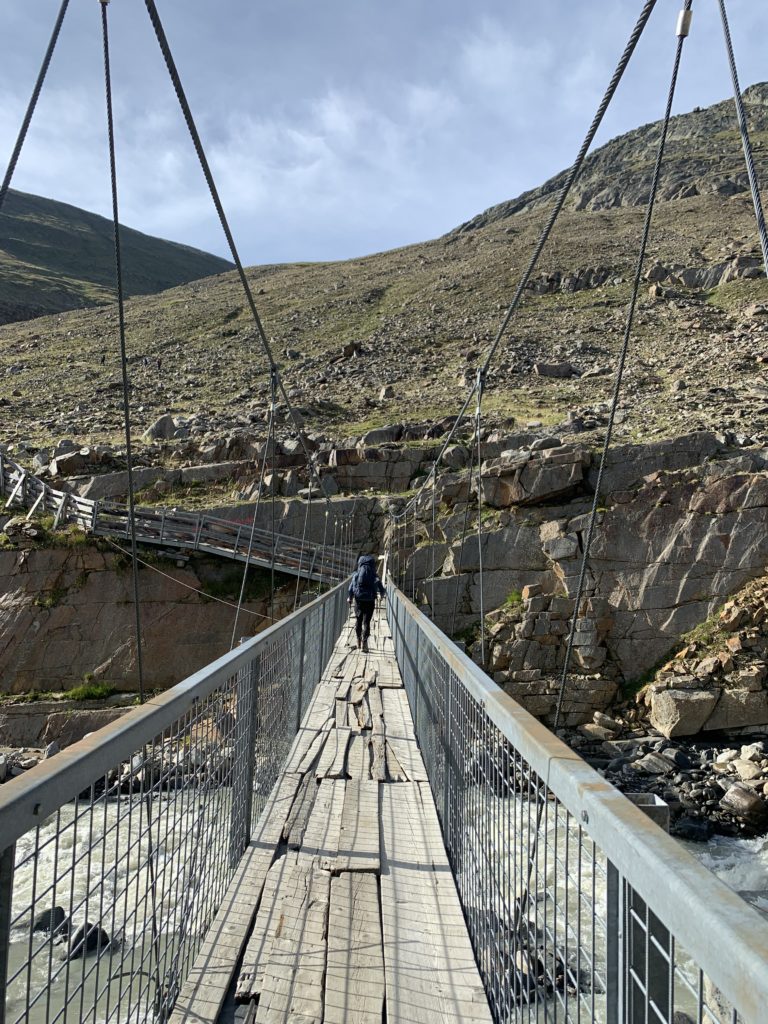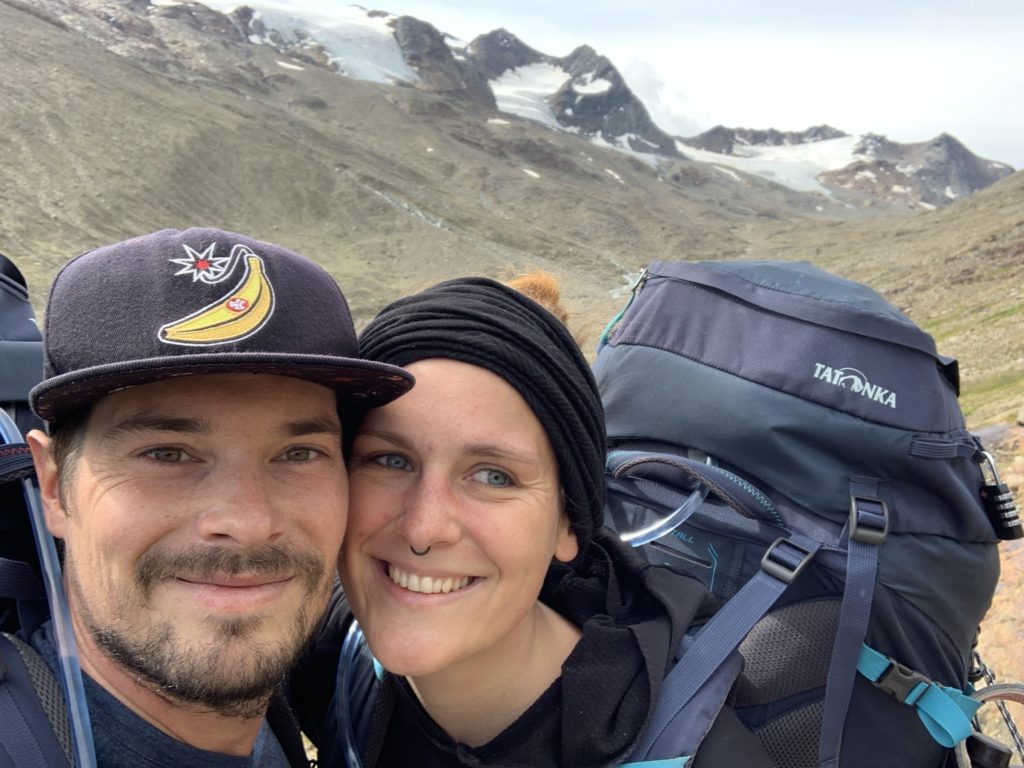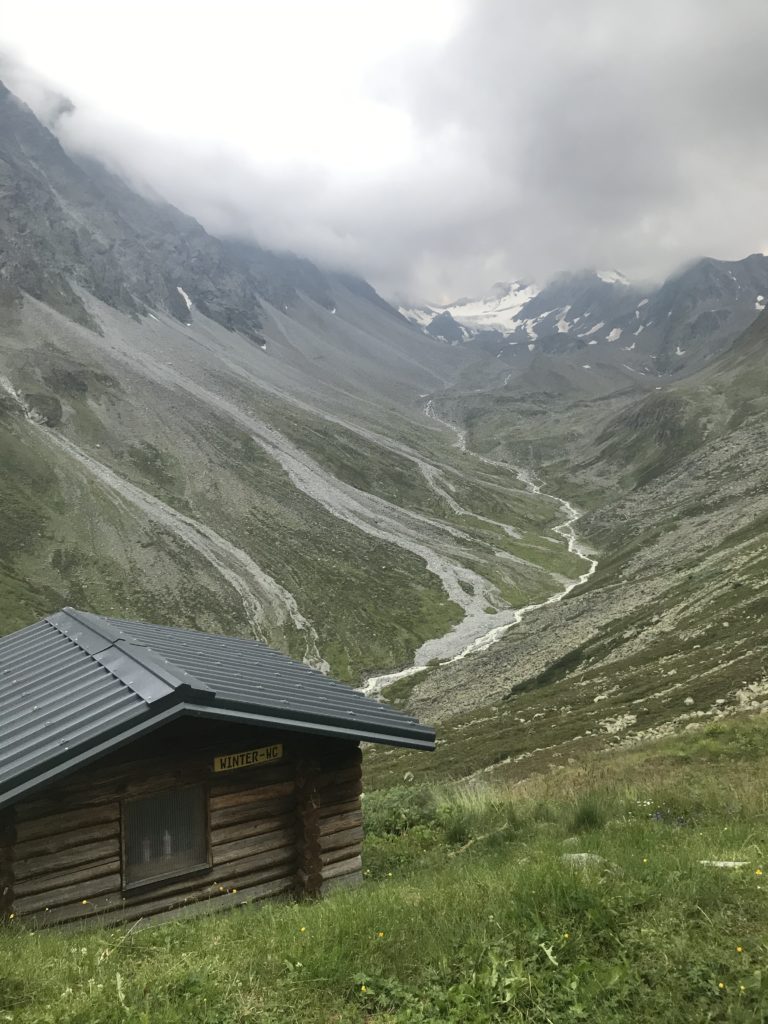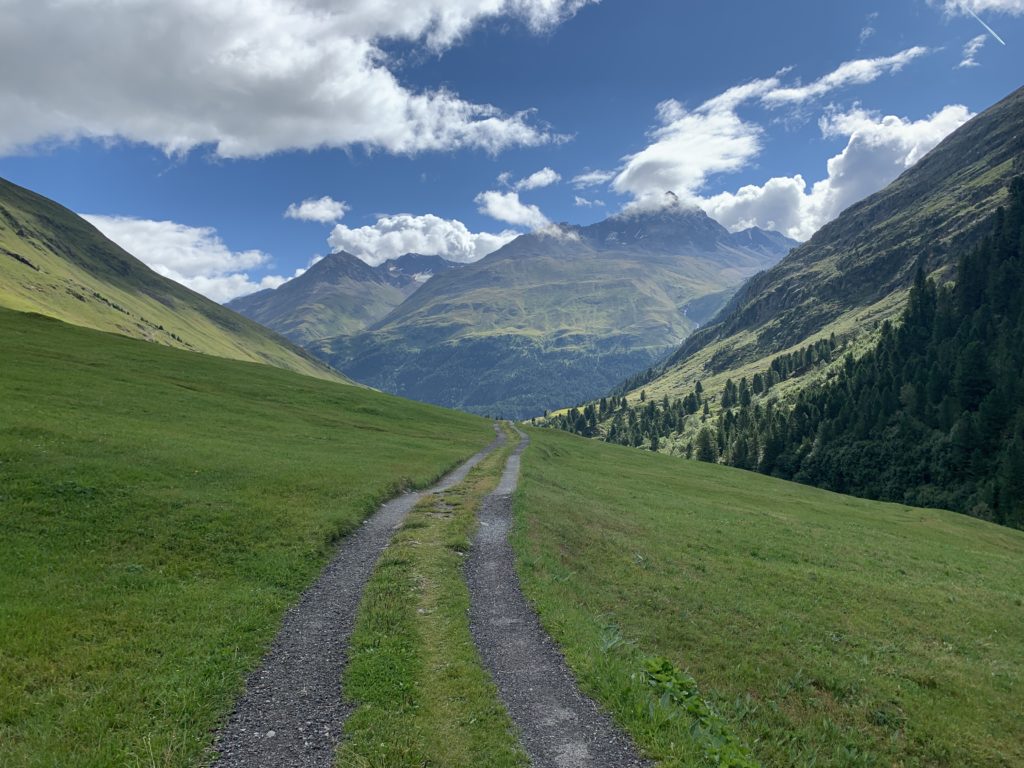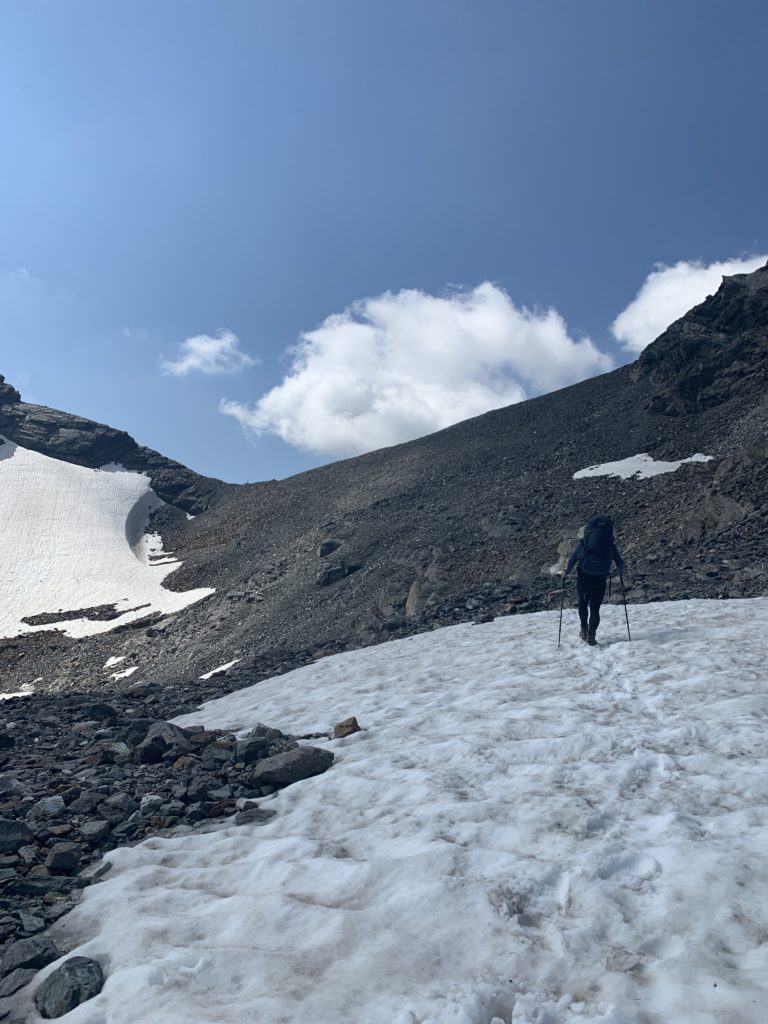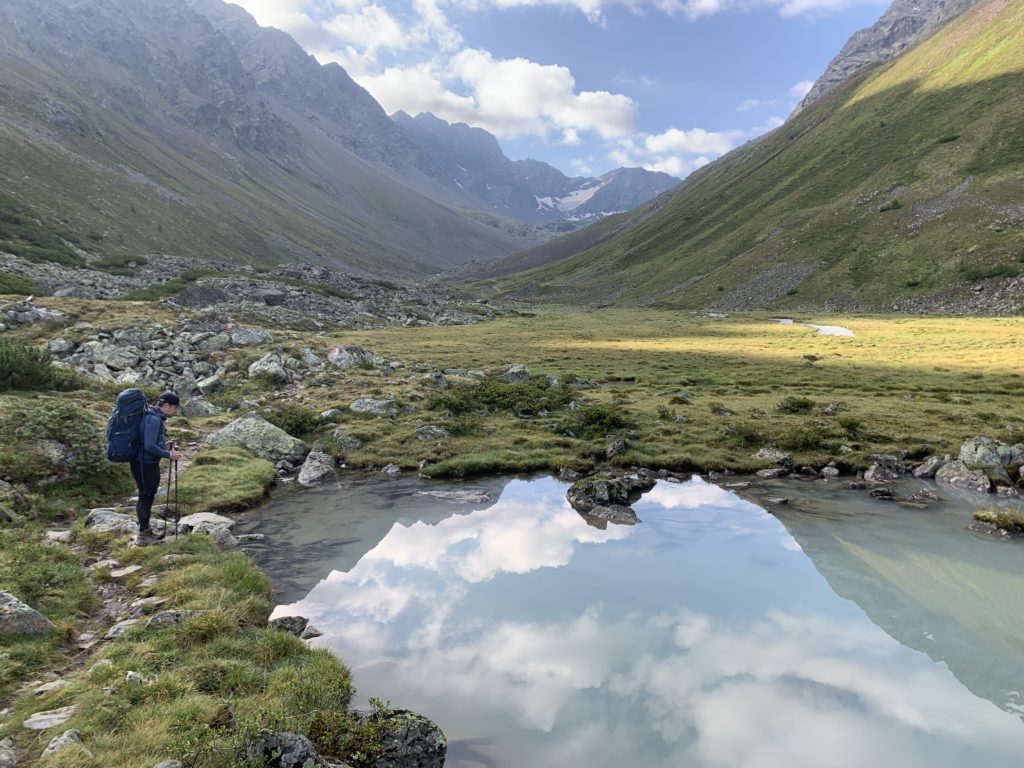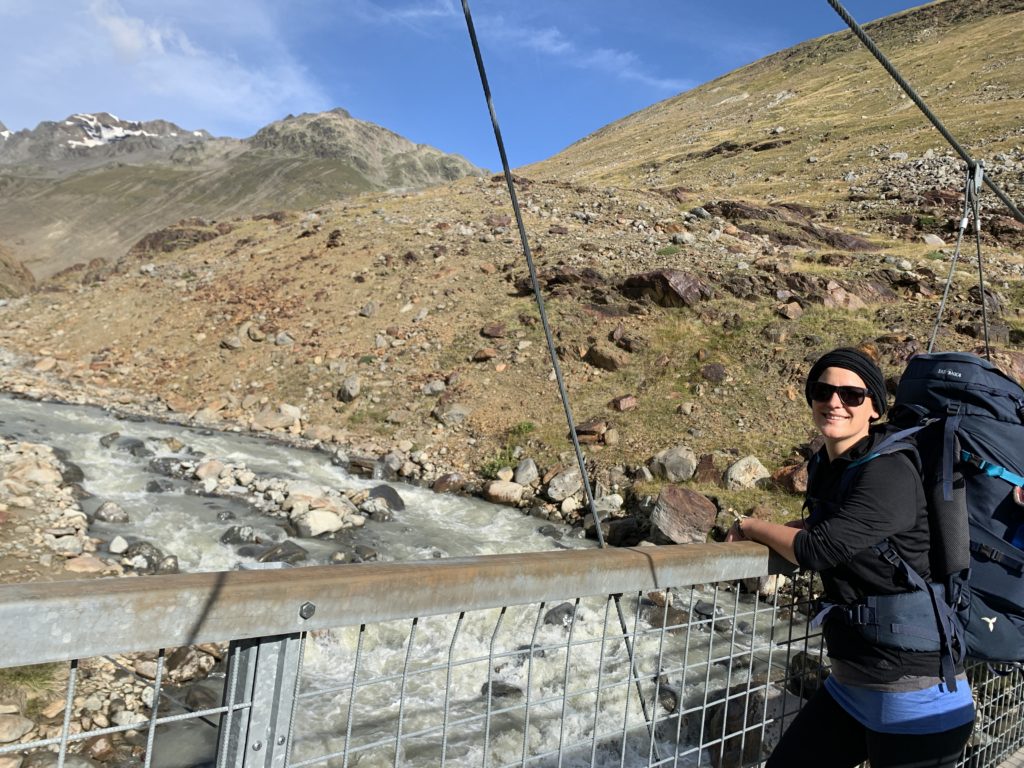From Farchant (Bavaria, Germany) to Peio (Italy) on the L1
250 kilometers in 16 days
Due to the Corona-Virus which is keeping all of us from travelling to far-off places of longing, we ventured forth to discover the beauty that can be found right on our doorstep. Come with us and join us on our very first glacier crossing and a journey that helped us to learn more about ourselves!

The ice crunched and cracked below our hiking boots. The almost unmistakable sound of breaking ice and and slipping mud appeared to be much more threatening, when you have to listen to it in real life and not coming from your TV speakers. The mountains and their fatally beautiful slopes compelled respect from us on many previous occasions, but at this moment for the first time it was pure fear that nourished the thought of reversion that started to grow in our minds. Before our departure we had reassured ourselves again at the alpine hut that it was possible to cross the glacier towards the Fürkelescharte without an ice axe or climbing rope, but the lady we asked only told us that many people had done it before us and if we would get in trouble, we still could just turn around and come back, right? Even our former investigations on the internet had all approved the assumption that a crossing would not be a problem at all.
But the heavy rains of the past few days must have caused a mudslide, because we were sinking into the fresh mud right up to our ankles and the path that both our GPS and hiking map suggested was nowhere to be found. The bare glacier always behind us, we planned our footsteps with as much caution and attention as possible, theoretically and according to what we saw with our own eyes there was no long way ahead of us, so we tried to stay positive. But only until Kevin, who was leading, was confronted with a deep ice grevice that rived its gaping mouth in front of us: “That’s it! We’re going back!”, he said and turned around instantly. I was absolutely aware that he was right and this was the only possible solution to this problem, but my combative spirit just could not deal with the fact that we should fail on the very last stage of our journey. The way back down was way worse than the ascension, on the icy, muddy surface we were slipping and sliding, our hearts were in our mouths and our nerves were raw.
Unexpected aid…
We just had internally secluded our last trek of the journey, when a group of three young women who were visibly annoyed by the ascension, but progressing energetically and assertively, approached us. Taking a long view, the women at least were equipped with attachable climbing irons which enabled us to circumvent the said ice grevice and which they readily shared with us. Only with the aid of this good team we accomplished the troublesome ascent and we gladly had honored their help with a cold drink at the next alpine hut awaiting further down, but even tough we took several breaks on our descent and waited for the women who took a break at the mountain crest, we’ve never seen them again. They certainly don’t know how much they made our day.
Up to this day I clearly remember a single raven sitting atop of the highest rock formation of the mountain crest whose persistent calls where the only noises that reached our ears in the overall silence of the surrounding mountain range. With my adrenaline-loaded blood and the fear still tingling in every last fibre of my body, it seemed to me like the “gallows bird” that it was to people in medieval times, a sign that we were merely snatched from the jaws of death. A few days later I read that corvids often appear in fairy tales to guide lost wanderers on their journeys and help them out with some useful tips. Definitely a nicer allegory for this wondrous encounter with nature.
…on beaten paths
Adventurous experiences like these are the ones that stick with you the longest on a journey like this. Most of our days were by far less scary and awe-inspiring as our glacier crossing, but all of the other days weren’t any the less unnerving. It all began with the preparation for this trip which not only came to us absolutely spontaneous, but was also affected by the Corona virus more than we would have expected beforehand. On the one hand we would have loved to use our tent way more often, we carried every necessity for a few days of self-sustaining travel in our backpacks which weighed about 15 kilogram each, but unlike in some scandinavian countries there is no such thing as the “freedom to roam” in the national parks in the European Alps in order to protect the fragile nature from wild campsites where tourists leave lots of trash and unwanted remains of other kinds behind. We totally understood this, we had seen how careless people tended to treat the environment. On the other hand we had to plan our trip precisely, we had to come up with a defined route from one alpine shelter to another and make a reservation on an exact date because the shelters were not only fully booked, but were moreover not allowed to take in unexpected guests spontaneously. In the end we had to lose our freedom to stay longer if we really enjoyed a place, but au contraire we now had the pressure to finish each stage on the days of our reservations, there was no room for fundamental mistakes, we had to pull this through.
We had to cut back exactly at these doings that we appreciated the most in our Southeast-Asia travels. But even though our undertaking couldn’t have been more spontaneous, everything went perfectly well, we got a reservation in almost every alpine shelter on the day we needed it and, in theory at least, we could proceed with our travels unimpeded. The only hurdles that had to be surmounted were again the ones in our heads placed there by family and friends who were uncertain if we could do such a challenging enterprise in our current fitness level. Many of them were thinking we underestimating the challenge ahead, and -by god- we did. “You overestimate yourselves”, is what my father said only hours before we departed, “250 kilometers are already a defiant goal, but it’s gonna be the meters in altitude that will bring you to your knees! Check it out and see how far you can make it, you can always stop.” We’ve heard things like that before we departed for our travels around the world, but they never made us stumble, if anything statements like these only seem to rile us up. We overcame the mental boundaries way faster than expected. But how important this perservance and morale were going to be for us in the upcoming weeks was only oblivious to us in theory.
Underrated ascents…
“This is really the way we have to take?! This is a back-breaking climb and there are boulders everywhere!” We had just passed the spring of the Partnach-ravine and were looking for the further path with the aid of our hiking map when we caught sight of another group of hikers way up ahead of us. We threw our hands up in despair, we had hiked ten kilometer already today and were still adapting to the unaccustomed weight of the backpacks and large blisters were already in the making on our heels and toes. But we had to go on, there was just no other option, weariness and exhaustion could not change this fact. And so we approached the last five kilometer ascent slowly, but steadily, one step at a time. We were bathed in sweat and gasping, not used to physical exercise like this. When one of us ran out of breath, it was the other one’s turn to motivate, giving up was not an option.
The first days were undoubtedly the worst: at first the body had to adjust to the unwonted strain and our bodies probably thought that we were nuttier than a fruitcake or on the run from something lethal. Even though my shoes fit perfectly well and raised no problems at all, I developed enormous blisters on both of my heels, I probably am too thin-skinned, treated with blister plasters I was good to go, though. But from day to day we got increasingly powerful and moved on without many discomforts, in advance we were rather afraid that our power could decrease over the course of time. But the human body is characterised by its adaptability, we got used to the life on the move and the daily walk was getting more tolerable by the day.
All worries are forgotten…
The behaviour of the people in the alpine huts was partially unbearable, in many cases thanks to the nonchalant manner of the inn keepers. In this connection it shouldn’t be forgotten that we were travelling at a time when a global pandemic was levering out the daily lives of people all over the world and tragically even was the death of many people. In the mountains our fellow human beings had either successfully superseded this fact or they were lulling themselves into a false sense of security surrounded by a multitude of sporty people who allegedly could only climb remote mountaintops with a sound health. Only in Germany and Italy it was still mandatory to wear a face mask in the alpine huts and in Austria where they weren’t mandatory anymore the people not seemed to consider them necessary, either.
The thread that still crippled the life of the people in the surrounding valleys, seemed to be forgotten, when people formed a queue without face mask or appropriate distance in front of the single shower which was available for all of the people spending the night at the mountain hut. Limitations of users in sanitary areas were mostly ignored and anyways there was no one to check the poor compliance. In case you dared to give an cheerful advice on these limitation and that they should best be adhered to you were mostly punished with malignant glances and sharp responses. Especially in Austria, where the mandatory face mask had just been banned, people repeatedly told us that we no longer had to wear our masks and we got the most leery glances for doing it anyway.
…we are safe here anyways
The hospitality areas, as well as the sleeping quarters were in many cases well-filled with people even though we were told beforehand that the occupancy would be very limited and in most cases the rooms were so small that one was compelled to wear the mask even when sleeping to protect oneself and the others and to keep the risk of a probable contagion low. All of our criticism may sound paranoid to our readers, but we were always very well-aware that careless behaviour would not only put ourselves, but also other people and mostly our friends anf family at home in potential danger when we returned and might have carried the Corona virus as a stowaway.
Traveling in times of Corona was and is definitely a luxury good which has to be handled with caution, because only for one’s selfish pleasure one gets in contact with a multitude of strangers which you wouldn’t have met if you just stayed at home. A great opportunity for the virus to spread uninhibited without any possibility to monitor the chain of infection. Important to keep in mind is the fact that self protection also means protection for your fellow human beings and I guess that everybody has a lot of dear people in his or her life which he or she wouldn’t want to loose to the carelessness of other people.
Surrounded by rocky giants
A pandemic like this shows us effortlessly what a perishable wonder life really is. You get a similar point of view on life when you are wandering amidst millennia-old rock formations, how small and insignificant a single person is in the face of world affairs and current events. Countless times we crossed the paths of diligent ant trails while climbing up steep mountains, the bustling individuals were busy finishing their daily tasks, never even wasting a bit of their attention on anything but work. Countless times we stood on cast off mountain crests or in the sheltered valleys and looked at the massive mountain formations and felt no different from the ants, insignificant agents in a seemingly infinite world and just like the ants we often spend our whole lives focusing on work and career and to serve others instead of caring about ourselves. We are running towards the ends of our lives without caring about all these little moments and enjoying how miraculous and astonishingly beautiful the world around us really is.
The most beautiful moments of our journey, like the breathtaking views from the mountains, the sightings of wild animals in their natural habitat, like chamoises and marmots and the various beauteous bugs and beetles and our first glacier crossing, they didn’t come to us for free. All of these moments were hard-earned with physical and psychological persistence. But all of these moments cannot be bought with money, the most precious moments are often hidden in experiences in nature or with other people and in moments in which you surpass yourself. But it’s in these moments when you have to remind yourself that sometimes you have to come to a halt in life and just take your time to really perceive and actively enjoy moments like these. If you keep on running through life, you are certainly going to miss the most magical moments.
Teamwork makes the dream work
“It’s a wrap, I can see the hut from here, we finally made it!!!”, is what Kevin shouts with relief a short distance ahead of me. My sight is still blinded from the tears in my eyes, not because I hurt myself while slipping away and sliding down a slope with my heavy backpack a few minutes ago, but rather because of the fact that today’s stage is one with no ending in sight. I am annoyed, desperate and, damn, I am terribly hungry. Worst of all, I was the one who navigated us into this bone-grinding situation, because it was me who blindly trusted the advice of an inn keeper who suggested the upcoming hut as a replacement for hers which was unfortunately fully booked. My blind trust resulted in a detour of about five kilometers in addition to the twelve kilometer hike we had to finish today. Moreover the conditions of this trail were far worse than anything we experienced before: loose boulders, dirt lanes and a small via ferrara above a daunting abyss. Our nerves were raw.
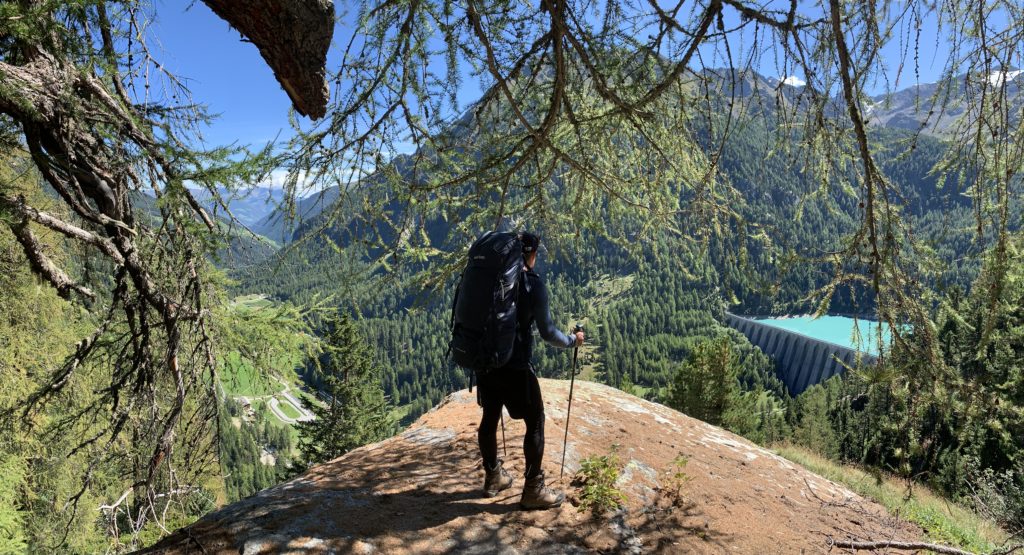
Kevin comes back and gives me a tight hug, we both are at ease because today’s stage really challenged us to perform at our very best. He looks at me, smiles and says: “It’s not too far now, we can do the rest as well.” It’s in moments like these in which I realise that for me its not about finishing the daily stage or even finishing the whole journey at all. It’s the small achievements that you acquire together, that you only master because of the aid of your travel partner which make traveling so rewarding. Being on our own we might have abandoned the journey in times we reached our limitations, but together we did not only fulfill our dream of crossing the alps, but once again we showed everyone that together we are unstoppable.
